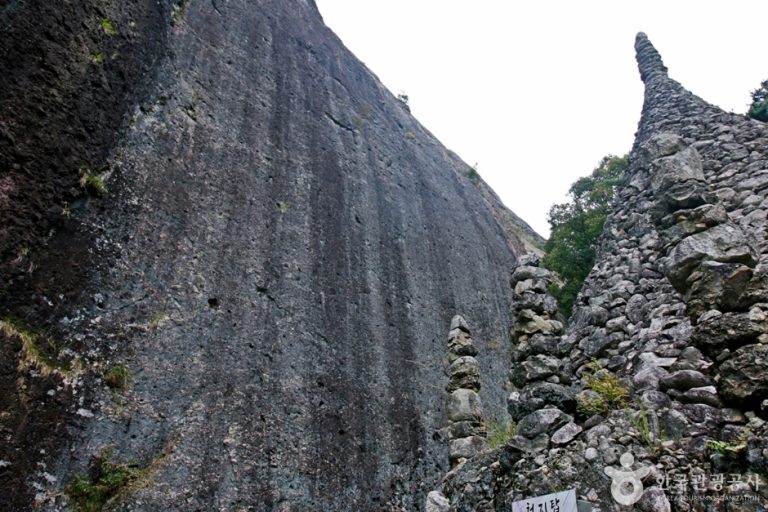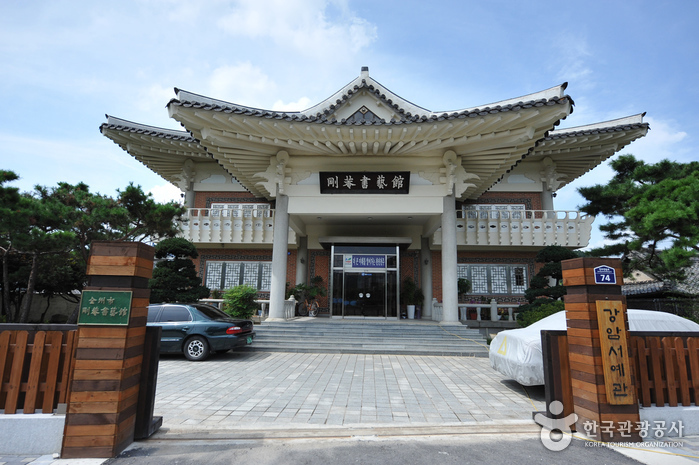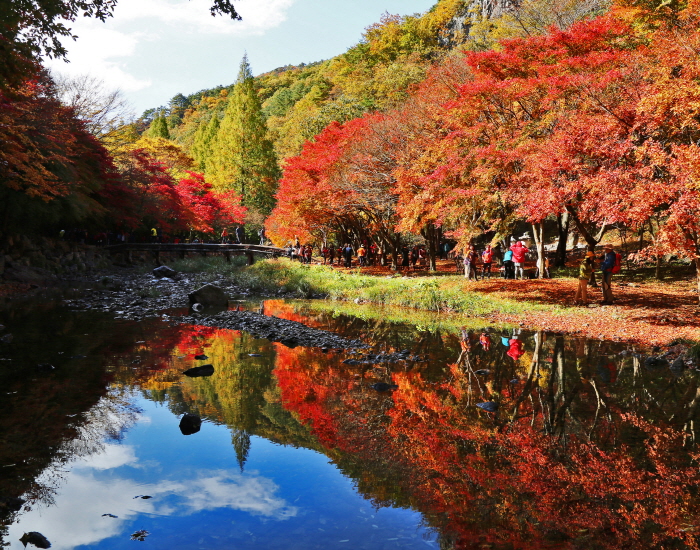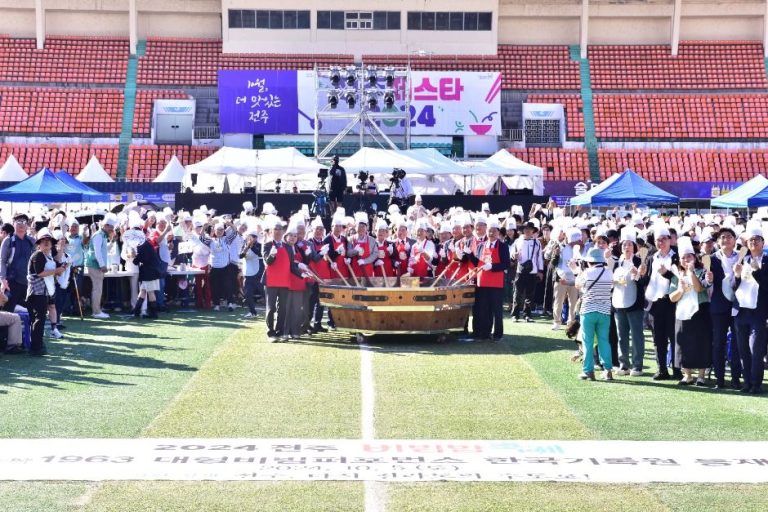Lahan Hotel Jeonju (라한호텔 전주)
Lahan Hotel Jeonju (라한호텔 전주)
 – Homepage
– Homepage
lahanhotels.com/jeonju/index.do
– Tel
+82-63-232-7000
Convenient location in Jeonju Hanok Village
The hotel has a total of 195 rooms. There are also ondol rooms and kids-concept rooms with car beds, so you have a wide range of choices. Located in Jeonju Hanok Village, you can walk to the filming locations of the drama as well as tourist attractions such as Gyeonggijeon Shrine, Omokdae, and Jeondong Catholic Church
– Address : 85 Girin-daero, Wansan-gu, Jeonju-si, Jeollabuk-do
※ Presentation Information
– Check-in Time
15:00
– Check-out Time
11:00
– Parking Fee
Available

◎ Nearby Tourism Infobox
⊙ Jeonju Traditional Liquor Museum (전주 전통술박물관)
View detailed guide on Korea Trip Guide →
– Homepage
urisul.net
– Tel
+82-63-287-6305
Jeonju Traditional Liquor Museum offers visitors the unique chance to explore the world of traditional Korean liquor and engage in related hands-on experience programs. At the museum, visitors can see the tools, machines, and the process used in the making of home-made traditional liquor and even taste them. Guests can also try their hand at making homemade wine and rice wine after making a reservation.
⊙ GaEunChae (가은채)
– Homepage
http://www.gaeunchae.kr
– Tel
+82-63-284-7775, +82-10-6335-5267
Gaeunchae is a hanok stay in Jeonju Hanok Village, Jeollabuk-do, constructed of wood in the traditional way without using nails. The location is ideal for local sightseeing as it’s close to Jeonju Craft Masters Hall, the Traditional Wine Museum, Seunggwangjae (home of the last Joseon prince Yi Seok), and Dakjong Hanji Doll Workshop. The exceptionally scenic alleyways around Gaeunchae are part of a Village tour. In the yard visitors will see different types of stone used as paving or decoration: granite, mica, and other local stones, all hand-trimmed by our ancestors.
⊙ Ihwa Gotaek (이화고택)

– Homepage
http://www.ewhahanok.com
– Tel
+82-10-9668-6232
Ihwa Old House in Jeonju Hanok Village, Jeollabuk-do, is a charming hanok stay with a more than 100-year history, which preserves the traditional hanok pattern of connected wood-floored spaces called Numaru, Toenmaru and Jjongmaru. There are eight guestrooms, all equipped with a toilet. All new guests are welcomed with a glass of home-made sikhye (sweet rice drink) or patbingsu (shaved ice red bean desert), while for breakfast bibimbap or rice-cake soup will be served in Korean brass bowls. Guests can have a go at traditional crafts such as pansori, the tea ceremony, natural dyeing, and hanji making.
⊙ Dongnagwon House (동락원)
View detailed guide on Korea Trip Guide →

– Homepage
www.dongnakwon.com/ (English, Japanese, Chinese)
– Tel
+82-63-285-3490
The Dongnagwon House in Jeonju Hanok Village provides a getaway to experience hanok stay and traditional Korean life. Affiliated with Jeonju Kijeon College, Dongnagwon is also a memorial hall dedicated to W. M. Junkin, who came to Korea as a missionary from the South Presbyterian Church of the United States in 1892. Dongnagwon is a reproduction of the old hanok houses in Jeonju from the time when W. M. Junkin was doing his missionary work in the area. It is
comprised of three buildings: Anchae (main hall), Sarangchae (guest house), and Haengnangchae (servants’ quarters).
Visitors to Dongnagwon can learn and experience traditional Korean culture such as music, crafts, and dance while inhabiting traditional lodging. In addition to providing accommodation for individual guests, Dongnagwon is also used for group accommodations or activities such as seminars, conferences, and family events. For groups of 30 or more, it is possible to rent out the entire venue (in addition to all facilities, including Seungdokdang, Seunghwadang, Cheongyuje, and the front yard).
⊙ Jeonggahanog / 정가한옥

– Homepage
http://www.jeonggahanog.co.kr
– Tel
+82-10-9934-1300, +82-10-3677-1928
Jeongga Hanok, standing right across the road from Jeonju Hanok Village, Jeollabuk-do, is a newbuild hanok combining traditional style with modern comfort. Guestrooms are cypress-walled and red clay-grounded. Thus the Cypress room has walls and ceilings of cypress wood. The Maple room and the Gingko room both have attics. Nearby tourist attractions, which can all be reached on foot, include Gyeonggijeon Hall, Jeondong Cathedral, Jeonju Hyanggyo Confucian School, Jaman Mural Village – and of course Jeonju Hanok Village.
⊙ Bukyungdang (부경당)

– Homepage
http://bukyungdang.com
– Tel
+82-10-5327-8736
Bukyeongdang is a traditional hanok with a beautiful garden in the center of Jeonju Hanok Village, Jeollabuk-do. Traditional roof tiles and wooden porch, jar stands next to stone walls, and a small flower garden all express characterist hanok charm. Simple cooking is possible in the shared kitchen. Visitors can store their luggage before check-in and after check-out, and tourist information is provided. The hanok is close to major tourist attractions such as Imokdae (where Joseon founder Taejo once lived) Gyeonggijeon Shrine, Jeondong Cathedral, and the Jeonju Hyanggo Confucian school).
⊙ Dong Nak Won / 동락원

– Homepage
http://dongnakwon.com
– Tel
+82-63-287-9300, +82-10-4951-9300
Dongnagwon is a hanok hotel in Jeonju Hanok Village, Jeollabuk-do. It was built as a memorial hall for the missionary William Junkin, who founded a school mission in Jeonju in 1895. Now refurbished as a hotel and venue for traditional performances, wedding ceremonies and seminars, visitors will find old-style interiors with antique furniture and folding screens. Guests can play traditional games in the yard, and there is a red clay room to relieve the fatigue of travel, free of charge. Mountain bikes can be borrowed to ride around the Hanok Village or on the banks of the Jeonjucheon Stream.
⊙ Dan Kyung (단경)

– Homepage
http://www.dankyung.kr
– Tel
+82-10-5304-4380
Standing on Hanji-gil in Jeonju Hanok Village, Jeollabuk-do, Dankyung is a hanok stay with a more-than 80 year history that now welcomes travellers to a comfortable and cozy space. There are five accommodations altogether – four rooms in the main building, plus an annexe which is rented as a whole house. The floors are of wood, creating a delicate scent in all the rooms. Across the yard is a gallery where guests can take tea or coffee while looking at the art works on its wall. From the gallery roof, there are fine views of Jeonju Hanok Village.
⊙ Jeonju Traditional Hanji Center (전주전통한지원)
View detailed guide on Korea Trip Guide →

– Homepage
www.hanzi.co.kr (Korean only)
– Tel
+82-10-8959-7757
Jeonju has been a major producer of quality hanji paper for more than a thousand years. In keeping with this proud tradition, the Jeonju Traditional Hanji Center aims to preserve traditional paper-making techniques and become a mainstay in the hanji industry. More than 80 percent of the paper produced at the center is exported to Japan while the rest is used in Korea. The center produces, exhibits, and sells hanji used for calligraphy, Oriental paintings, and crafts, as well as special “yellow earth” wallpaper hanji and charcoal hanji, said to provide certain health benefits. Visitors can also sign up for crafting classes, including first-hand experience at making hanji, imprinting patterns and drying the paper.


![2night [Korea Quality] / 투나잇호텔 [한국관광 품질인증]](https://ktrip.blogsailing.com/wp-content/uploads/2025/11/2651532_image2_1.jpg)


2 Comments